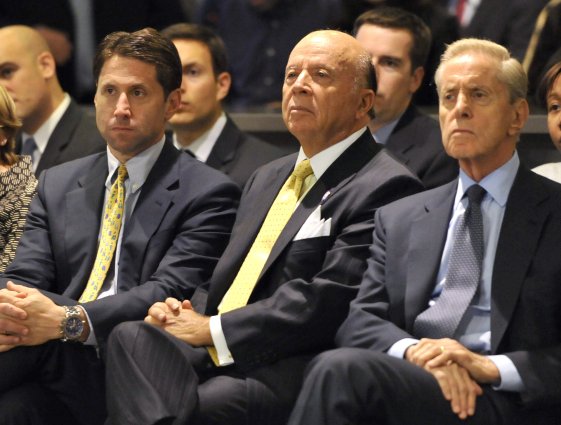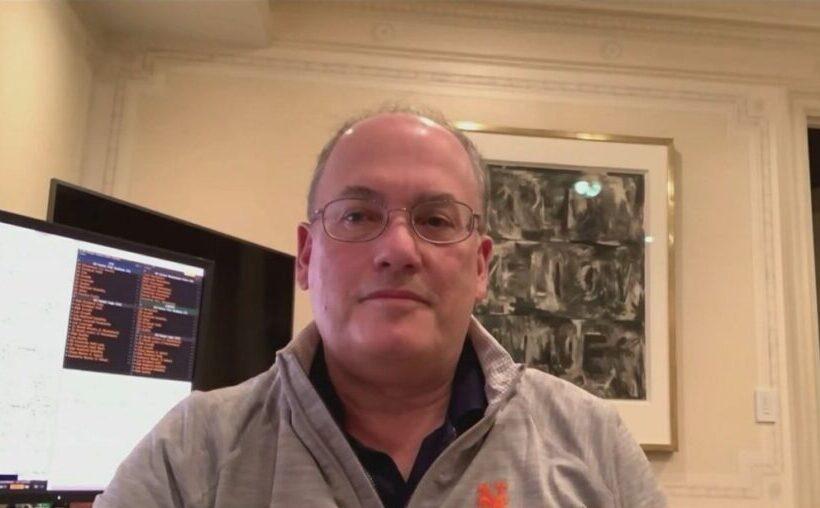
It’s hard to say something that doesn’t mean anything. That sounds like a nugget of philosophical wisdom, or a Taylor Swift lyric, but it’s true. The whole point of language is that it all means something. If it didn’t, the cavemen wouldn’t have come up with it. They didn’t have time for meaningless words, what with punching each other and fleeing mammoths and all their other caveman hijinks. Modern humans don’t punch each other as much, and language involves less grunting, but words still must have meaning.
There’s the common Spring Training refrain, for instance, that “he’s in the best shape of his life!” Some people say it’s meaningless, but really, it’s always meant the same thing. Overusing a phrase doesn’t change its meaning; it changes whether listeners believe it.
The meaning of “he’s in the best shape of his life” isn’t complicated. It means a player is in the best shape of his life. It might turn out to be irrelevant or false, but that doesn’t mean the phrase itself was meaningless. It still bears the meaning with which early inventors of language imbued it as they sat around grunting and flinging dung.
Meaning is one thing; truth and relevance are two others. They’re like RBIs and actual offensive ability: completely different things that are often entirely unrelated.
I’ve been thinking about meaning ever since I read Joel Sherman’s column in the New York Post. Things haven’t really changed, Sherman says, since Steve Cohen took over. “The Mets really need to stop being Wilpon-ian,” he writes.
At first, I thought it was meaningless. Then I realized: it’s not exactly. The meaning is plain as day. The truth and relevance, though, aren’t.
What does “stop being Wilpon-ian” mean, exactly? It’s obvious: it means the Mets front office is acting like it did under Wilpon ownership, and it should stop. But is this relevant? And is it true?

First off, what does Sherman mean by “Wilpon-ian”? He tells us. “You can explain each (free agent that the Mets didn’t sign) away,” he writes. “But that is a Wilpon thing, close but no big star in free agency.” So basically, like the Wilpons, Steve Cohen has said he’s targeting big fish in free agency, but also like the Wilpons, he hasn’t finished the job, and now he’s making excuses. If it were true, this would be a bad, bad thing.
But it’s not true. Clearly. Equating this Mets offseason with offseasons under Wilpon rule is sort of like looking at Abraham Lincoln and a random 16th century criminal who poisoned a lake, and saying “they’re both failures, because in the end they both died. Really, Lincoln, you died? You need to stop acting so much like that guy who poisoned a lake.”
The Mets, as Sherman spends paragraphs explaining but then ignores, do have excellent explanations behind all the free agents they didn’t sign. The Wilpons always tried to explain away their free-agency failures, but they almost never had actual, legitimate explanations; it was all just cover for not having money, or not wanting to spend it. That’s not what’s going on here.

The Mets offered Trevor Bauer about $110 million, for goodness sake, and thought they’d agreed to a deal; they didn’t want to wait around for J.T. Realmuto, so they signed the next-best option. Springer would have been an upgrade, but he’s getting older, and might have consigned Dominic Smith to the bench and prevented the Mets from locking up their homegrown outfield talent. Meanwhile, the Mets have also signed Trevor May and re-signed Marcus Stroman and added Joey Lucchesi and Jordan Yamamoto, and for goodness’ sake, they traded for Carlos Carrasco and Francisco Lindor.
Missing out on free agents this way isn’t “Wilpon-ian” at all. Steve Cohen’s way of missing out on free agents is to offer them $110 million, but have them sign with their hometown team at a discount instead. The Wilpon-ian free-agency method, meanwhile, was basically to make either no offer or a lowball offer to a superstar, and then hold a press conference: “We really do believe that even more than Bryce Harper, we’ve found exactly the dynamic outfield talent we’re looking for in Keon Broxton.”
Just before this column went to print, the Mets signed Taijuan Walker to be a back-end starter. The Wilpon-ian way to do it was to sign Rick Porcello and Michael Wacha, and hope that either A) they magically rediscovered long-gone talent, or B) memories of their long-ago good seasons overshadowed how bad they were in the present. Clearly, that’s not what’s happening here.
Wilpon-ian? This offseason has been no such thing. The Mets have traded for one of the best shortstops in baseball, brought in two top-flight starting pitchers, a solid back-end starter, and an excellent catcher, and made several other useful additions. The Wilpons, it turns out, were the cavemen, flinging dung at their fans in the form of press conferences hyping the likes of Jed Lowrie and Jay Bruce. Steve Cohen, meanwhile, turns out to be the modern human, and Mets fans can rest assured that he’ll never bombard them with steaming piles of fourth outfielders disguised as superb starting options.















